The Fiduciary Profession: Transformation in the Digital Era
The fiduciary – a profession that has been one of Switzerland’s most recognised qualifications for over 30 years! A quick glance at their core responsibilities explains why. Today’s fiduciary is far more than just a numbers expert. Instead, they combine competencies from a variety of fields such as financial accounting, tax consulting, and business advisory. For companies, they act as a trusted support in complex matters.
Like many other industries, digital transformation has had a major impact on the fiduciary profession. Routine tasks can now be digitised with ease, allowing fiduciaries to focus on in-depth, future-oriented consulting. So what will the fiduciary’s career path look like in the future? And is this the right profession for you?
Your next position as a fiduciary
is waiting at Nexova.
Highlights
- The modern fiduciary brings multiple skills under one roof
- Digitalisation frees fiduciaries from repetitive, monotonous tasks
- Data analysis and digital tools enable customised client solutions
- The classic fiduciary career path starts with a commercial apprenticeship
- In addition to technical knowledge, soft skills like empathy and solution-oriented thinking are essential for a fiduciary
Content
- The Fiduciary Profession: Transformation in the Digital Era
- Trusted by over 150 companies
- What does the modern fiduciary’s role look like?
- Digital revolution: what opportunities does it offer fiduciaries?
- Entry paths and career trajectories: How to gain a foothold in the fiduciary industry
- What soft skills does today’s fiduciary need?
- Your digital trustee partner
- Trusted by over 150 companies
- Trusted by over 150 companies
What does the modern fiduciary’s role look like?
The modern fiduciary handles a wide range of responsibilities. They combine everything from financial accounting to business advisory. Below is a closer look at the three core areas:
Financial accounting and bookkeeping
Fiduciaries possess extensive knowledge of operational and financial accounting. Their responsibilities include tasks like preparing cost accounting reports (management accounting). They analyse and evaluate financial outcomes to support business decisions and implementation. If a client handles their own bookkeeping, the fiduciary supports them with oversight and specialised accounting tasks.
Fiduciaries help businesses with:
- Preparing operational and cost accounts
- Managing financial accounting
- Analysing and evaluating company performance
- Advising on financial actions and their implementation
- Preparing income statements and balance sheets
Tax consulting
Fiduciaries are specialists in tax consulting. They prepare tax returns and plan or optimise tax burdens—helping companies reduce costs while complying with regulations. This includes advising on VAT reporting and potential optimisation strategies. They also support businesses during reassessments, penalties, or audits.
Fiduciaries assist with:
- Tax planning and optimisation
- Pending reassessment or penalty tax procedures
- VAT reporting and optimisation
- Tax issues related to business formation, mergers, or succession
- Preparing tax returns
Business and management consulting
Fiduciary consulting goes far beyond numbers. Fiduciaries support companies during restructurings, mergers, or succession planning, and offer strategic guidance for long-term corporate development. They also handle final audits, budgeting, business and investment planning, and related financing issues and financial modelling.
This includes help with:
- Company formation, restructuring, and mergers
- Succession planning and business valuation
- Business plans and investment calculations
- Strategies for sustainable business growth
- Analysis and optimisation of business processes
Your next position as a fiduciary
is waiting at Nexova.
Digital revolution: what opportunities does it offer fiduciaries?
Let’s be clear: the fiduciary role is changing! With digitalisation and AI, the profession is evolving toward a hybrid model of collaboration. The extent to which this happens depends on the company’s digital maturity. In any case, digitalisation brings significant opportunities and efficiencies for both sides. Below, we examine key advantages.
Boosting efficiency and saving time
Digitalisation significantly improves efficiency and saves time—something every fiduciary values. Time-consuming processes in accounting, payroll, or tax can now be automated. For example, fiduciaries will soon no longer need to enter receipts manually—this step is becoming fully automated. Digital forms are also easier to compile than traditional filing methods.
The benefits?
- Better use of time and resources
- Lower costs
- More time for complex advisory tasks
Document Management System (DMS)
Administrative tasks still consume substantial time. The solution? A DMS allows fiduciaries to retrieve documents within seconds. This allows them to access and manage documents at any time, minimising admin work. This system already supports both simple and complex document management needs.
Enhanced advisory capabilities
Digitalisation elevates advisory services to a new level. With digital tools and data analysis, fiduciaries can offer proactive advice, especially in strategic areas like tax optimisation and financial planning.
Digital inbox
Documents are still often exchanged by email or post. The fiduciary then has to manually enter the information. A digital inbox digitises physical mail quickly and in compliance with regulations, importing and storing the data automatically—whether it comes via post or email.
Location-independent work
In the past, vacation and work rarely went together. Today, digital tools allow fiduciaries to attend meetings and consultations from anywhere in the world. The pandemic proved this model works. Whether working from the Swiss Alps or the Spanish coast, fiduciaries can remain fully engaged in their work responsibilities. Many employers are embracing hybrid work models—improving both work-life balance and client satisfaction.
Client portal
Digital client portals are already accelerating workflows for businesses. In future, modern fiduciaries will be able to request documents directly from clients via a web portal—no calls or emails needed. Clients receive a notification and upload documents to the secure portal, which is linked to the DMS. Documents for clients can also be uploaded and sent automatically.
Your next position as a fiduciary
is waiting at Nexova.
Entry paths and career trajectories: How to gain a foothold in the fiduciary industry
In Switzerland, the fiduciary profession is not legally protected.
This means: there are no licensing requirements, no protected job title, and no mandatory exams. Anyone can call themselves a “fiduciary” and offer related services—regardless of education or experience.
But in practice, fiduciary work is highly complex and carries great responsibility. Clients expect technical expertise and hands-on experience—especially in accounting, tax, payroll, and business advisory. Most clients also expect proof of professional qualifications. Success in this field therefore requires both critical thinking and ongoing education.
A typical, recognised career path begins with a commercial apprenticeship (EFZ), preferably at a fiduciary firm. After several years of professional experience, one can take the federal professional examination to become a “fiduciary with a professional certificate”.
Unlike the job title “fiduciary”, this qualification is legally protected. The part-time training usually spans several semesters and covers topics such as finance and accounting, taxes, social insurance, auditing, business consulting, and commercial law.
Those wishing to specialise further can complete the higher professional examination to become a certified fiduciary expert—a recognised tertiary-level qualification. As alternatives or additions, further training to become a certified tax expert or certified auditor is also possible.
This part-time degree programme (8 semesters) provides business fundamentals with a clear fiduciary focus—covering areas such as financial leadership, taxation, auditing, digitalisation, business and management consulting—and concludes with the title “Bachelor of Science in Fiduciary Services.”
While there is currently no master’s degree specifically titled “Fiduciary Services”, a Master’s in Business Administration, Accounting, Controlling or Taxation can offer an academic specialisation closely related to the fiduciary field.
Your next position as a fiduciary
is waiting at Nexova.
What soft skills does today’s fiduciary need?
The modern fiduciary must possess more than just technical understanding. The following soft skills are essential to help fiduciaries meet the complex demands of their profession:
Empathy and communication
Fiduciaries often work closely with clients and internal teams, which makes interpersonal skills just as important as technical expertise. Open, honest communication and a sense of empathy are essential for understanding individual needs and building lasting trust—especially when the topics at hand involve complex business matters, such as setting up a company in Switzerland for a foreign entrepreneur.
Cultural intelligence
As digitisation leads to businesses becoming more international, fiduciaries increasingly support clients with cross-border ambitions. A Swiss online retailer might expand abroad, or a foreign company may choose to establish operations in Switzerland. In either case, fiduciaries play a key role in bridging legal, cultural, and procedural gaps. That requires not just regulatory knowledge, but also the ability to understand and respect different cultural perspectives, reacting with flexibility and awareness. This cultural sensitivity strengthens relationships with global clients and partners.
Emotional intelligence
Companies often turn to fiduciaries with sensitive issues, particularly in the context of business and management consulting. In these situations, a high level of sensitivity is crucial. Clients want to feel that they’re in good hands, supported by someone they can trust. This trust is built when the fiduciary engages openly with questions and concerns and shows they take them seriously. They need to maintain composure and confidence, even in difficult conversations—whether in person or online. What makes this possible is a strong mix of emotional intelligence and a calm, professional presence.
Solution-oriented thinking
In these times of economic uncertainty, it’s especially important that fiduciaries act as trusted advisors. When a business faces financial challenges or complex decisions, the fiduciary often becomes the first point of contact. This calls for clear thinking, a steady presence, and a forward-looking mindset. By not only offering solutions but also showing foresight and a clear perspective, fiduciaries help their clients stay grounded, even during turbulent times, and guide them toward stability with confidence and reliability
Your next position as a fiduciary
is waiting at Nexova.
Your digital trustee partner

Digitalisation is transforming the fiduciary profession—and at Nexova, you can actively shape that transformation. As a fully digital fiduciary firm with a nationwide presence, we support startups and companies from all over the world.
Want to be more than just a number cruncher? Join our team and apply today! Together, we create solutions that drive businesses forward and your career along with them.
FAQ
Answers at a click
How do I become a fiduciary in Switzerland?
Since the profession is unregulated, you can theoretically start at any time. In practice, though, it’s advisable to build a solid foundation in accounting, tax, auditing, and advisory. A commercial apprenticeship in a fiduciary office is a good starting point, followed by further qualifications like the Federal Certificate of Professional Expertise in Trusteeship or training as a certified trust expert.
What are the main responsibilities of a fiduciary?
Fiduciaries handle a variety of tasks including financial accounting, tax consulting, and business advisory services.
Does the fiduciary profession have a future in the age of AI?
Yes. Artificial intelligence may reshape the profession, but it mainly automates routine tasks. This frees fiduciaries to focus on complex services—such as company formation for foreign clients.
What qualifications should a fiduciary have?
In addition to technical expertise, fiduciaries need soft skills like empathy, communication, cultural intelligence, and a solution-oriented mindset.
Trusted by over 250 companies
Discover the diversity of our customers

As an internationally active biotechnology company that stands for innovation and the highest quality, we work exclusively with partners who meet our high standards. Nexova consistently impresses us with exceptional service quality, robust processes, and an impressive pace. The professional, solution-oriented, and efficient collaboration allows us to fully focus on our core business. Additionally, we would like to highlight the remarkable cost savings of 35% compared to in-house accounting. We particularly appreciate how Nexova quickly understands, develops, and promptly implements complex requirements – both within Switzerland and at our international subsidiaries. We can wholeheartedly recommend the Nexova team.

Nexova AG offers highly professional accounting services that have significantly enhanced our financial management at Learning Lab. Their team is precise and reactive, always delivering accurate and timely reports while promptly addressing our queries. With Nexova AG’s support, we manage our clients’ accounts and finances more efficiently. We highly recommend Nexova AG for their exceptional accounting services.

For us as a new catering company, it is essential that our trustee understands our specific needs and responds flexibly to our requirements. In Nexova AG, we have found the ideal partner who supports us competently in all fiduciary matters and actively promotes our growth.

Uncomplicated or serious? Or is it and? A young, clever team is at work here, offering excellent services, highly uncomplicated and competent. Instead of a prestigious reception, expensive offices and chocolates, there are fast services and competent services. For me as a one-man company, this is exactly what I need.

Arvy AG has found an exceptional partner in Nexova AG. Their very high level of expertise in FINMA-regulated industries ensures that our financial transactions are in safe and competent hands. What sets Nexova apart is their flat-rate pricing structure, which has helped us greatly with budgeting and financial planning. As a company committed to long-term success and integrity in investments, we are very satisfied with the services provided by Nexova AG.

For us as an EdTech startup, it is very important that our trustee is as digital and agile as we are. With Nexova AG, we have found the perfect partner who can actively support us in our growth.
